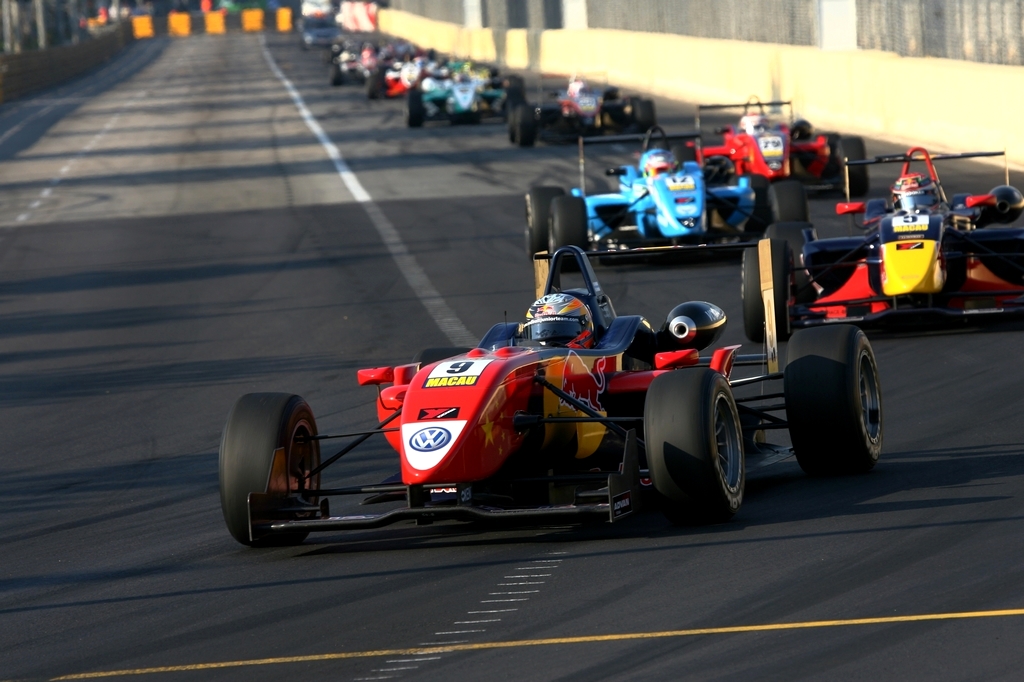About Macau
(1) Location
Macau or Macao, officially the Macao Special Administrative Region of the People's Republic of China, is a special administrative region on the western side of the Pearl River estuary in southern China. With a population of 653,100 and an area of 32.9 km2, it is the most densely populated region in the world.
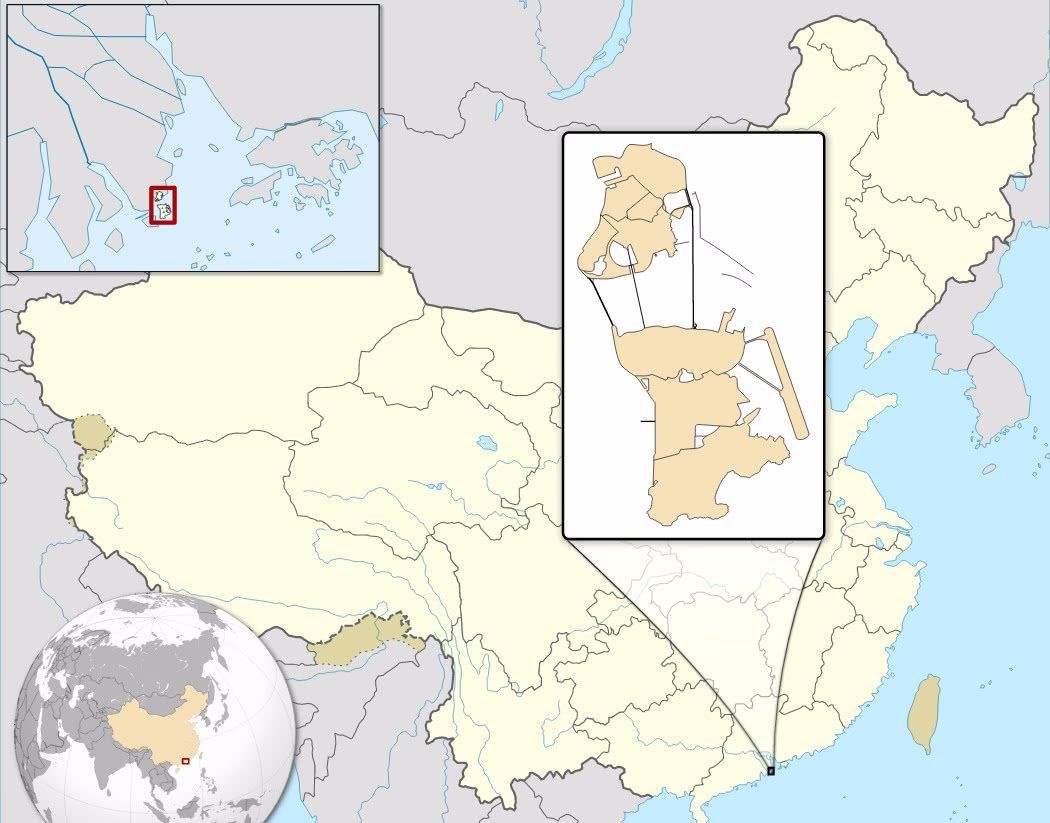
(2) Economy
The economy of Macau has remained one of the most open in the world since its handover to China in 1999. Apparel exports and gambling-related tourism are mainstays of the economy. Since Macau has little arable land and few natural resources, it depends on mainland China for most of its food, fresh water, and energy imports. Japan and Hong Kong are the main suppliers of raw materials and capital goods. Although Macau was hit hard by the 1997–98 Asian financial crisis and the global downturn in 2001, its economy grew approximately 13.1% annually on average between 2001 and 2006. Macau is a full Member of the World Trade Organization. Public Security has greatly improved after handover to People's Republic of China. With the tax revenue from the profitable gambling industry, the Macau government is able to introduce the social welfare program of 15 years of free education to all Macau citizens
(3) Tourism
Tourism is a major industry in Macau. It is famous for the blend of Portuguese and Chinese cultures and its gambling industry, which includes Casino Lisboa, Macau, Sands Macau, The Venetian Macao, and Wynn Macau.
The climate in Macau is temperate degree in a year. The temperature is about 20 °C (68 °F) and ranges from 16 °C (50 °F) to 25 °C (77 °F). The best time to go to Macau is around October-December. Visitors can bring some casual and portable clothes during travel time. If in winter period, visitors can bring a coat or jacket. The weather in Macau is stable.
Heritage tourism:

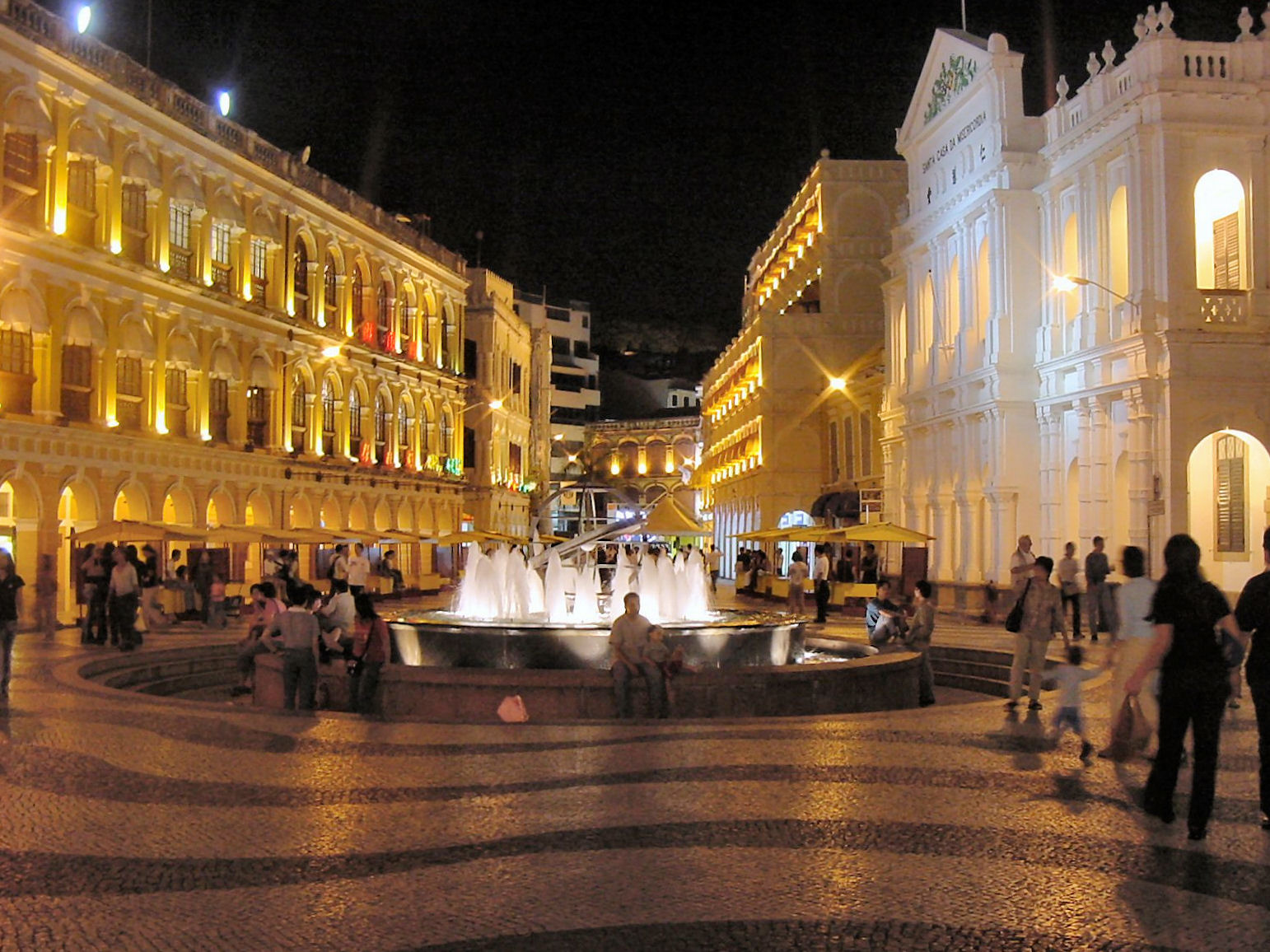
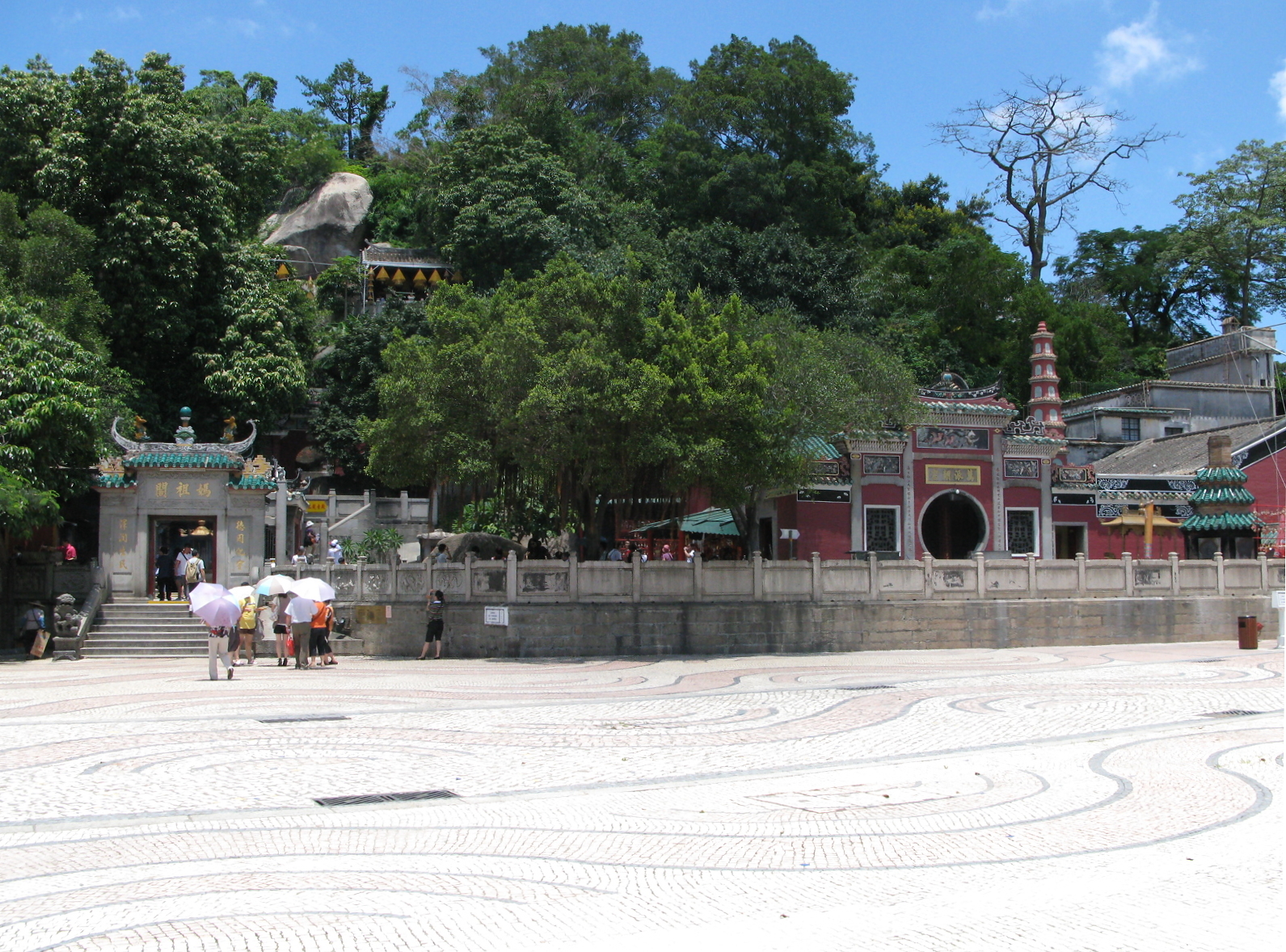
(4) Culture
The mixing of the Chinese and Portuguese cultures and religious traditions for more than four centuries has left Macau with an inimitable collection of holidays, festivals and events. The biggest event of the year is the Macau Grand Prix in November, when the main streets in Macau Peninsula are converted to a racetrack bearing similarities with the Monaco Grand Prix. Other annual events include Macau Arts festival in March, the International Fireworks Display Contest in September, the International Music festival in October and/or November, and the Macau International Marathon in December.
The Lunar Chinese New Year is the most important traditional festival and celebration normally takes place in late January or early February. The Pou Tai Un Temple in Taipa is the place for the Feast of Tou Tei, the Earth god, in February. The Procession of the Passion of Our Lord is a well-known Roman Catholic rite and journey, which travels from Saint Austin's Church to the Cathedral, also taking place in February.
A-Ma Temple, which honours the Goddess Matsu, is in full swing in April with many worshippers celebrating the A-Ma festival. In May it is common to see dancing dragons at the Feast of the Drunken Dragon and twinkling-clean Buddhas at the Feast of the Bathing of Lord Buddha. In Coloane Village, the Taoist god Tam Kong is also honoured on the same day. Dragon Boat festival is brought into play on Nam Van Lake in June and Hungry Ghosts' festival, in late August and/or early September every year. All events and festivities of the year end with Winter Solstice in December.
Language
The predominant language is Cantonese, a variety of Chinese originating in Guangdong. It is spoken by 87.5 per cent of the population, 80.1 per cent as a first language and 7.5 per cent as a second language. Only 2.3 per cent can speak Portuguese, the other official language; 0.7 per cent are native speakers, and 1.6 per cent use it as a second language. Increased immigration from mainland China in recent years has added to the number of Mandarin speakers, making up about half of the population (50.4 per cent); 5.5 per cent are native speakers and 44.9 per cent are second language speakers. Traditional Chinese characters are used in writing, rather than the simplified characters used on the mainland. English is considered an additional working language and is spoken by over a quarter of the population (27.5 per cent); 2.8 per cent are native speakers, and 24.7 per cent speak English as a second language. Macanese Patois, a local creole generally known as Patuá, is now spoken only by a few in the older Macanese community.
Food
Food in Macau is mainly based on both Cantonese and Portuguese cuisine, drawing influences from Indian and Malay dishes as well, reflecting a unique cultural and culinary blend after centuries of colonial rule. Portuguese recipes were adapted to use local ingredients, such as fresh seafood, turmeric, coconut milk, and adzuki beans. These adaptations produced Macanese variations of traditional Portuguese dishes including caldo verde, minchee, and cozido à portuguesa. While many restaurants claim to serve traditional Portuguese or Macanese dishes, most serve a mix of Cantonese-Portuguese fusion cuisine. Galinha à portuguesa and egg tarts are examples of Chinese dishes that draw from Macanese influences, but are not part of Macanese cuisine. Cha chaan teng, a type of fast casual diner originating in Hong Kong that serves that region's interpretation of Western food, are also prevalent in Macau. Pastel de nata, pork chop buns, and almond biscuits are popular street food items.
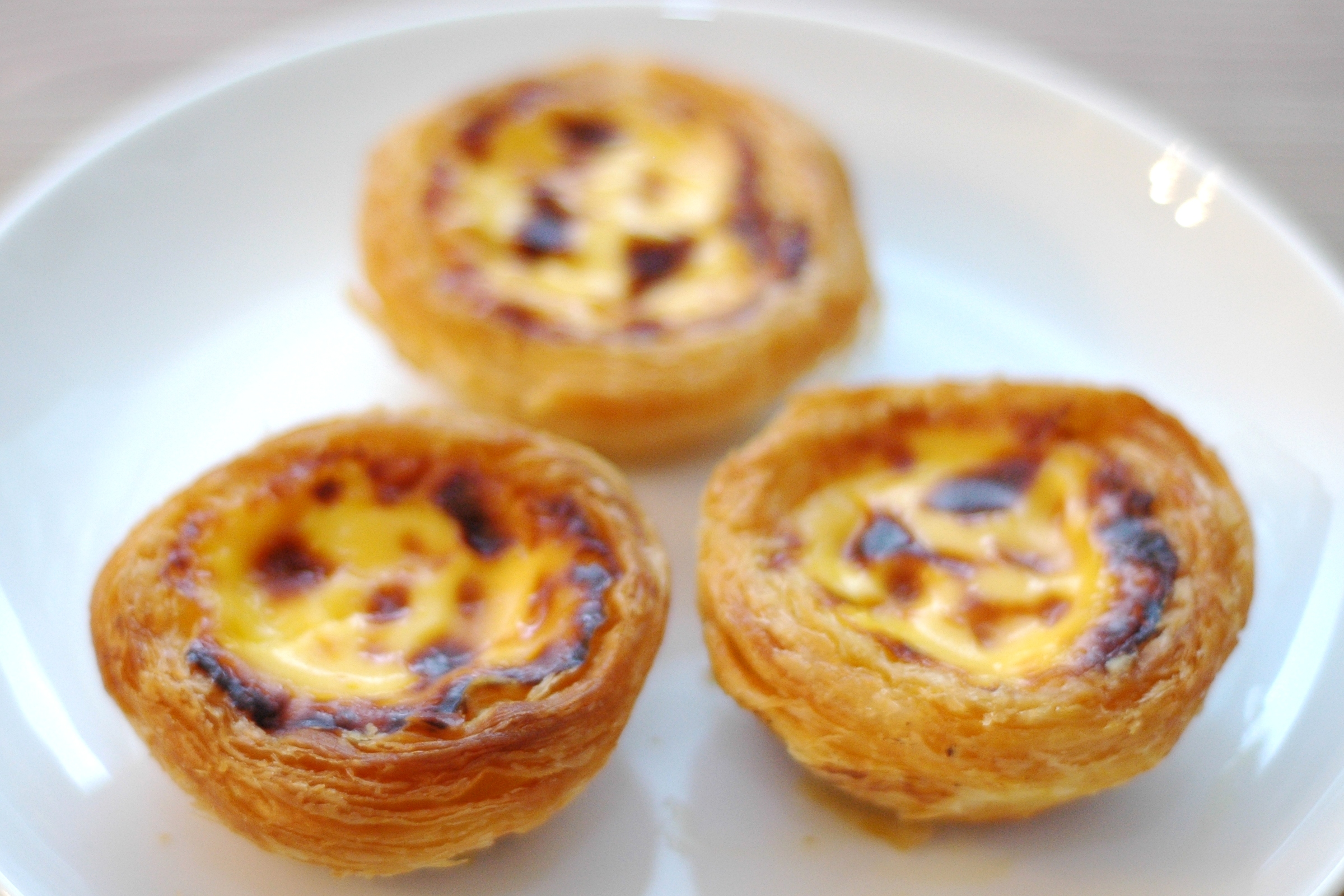
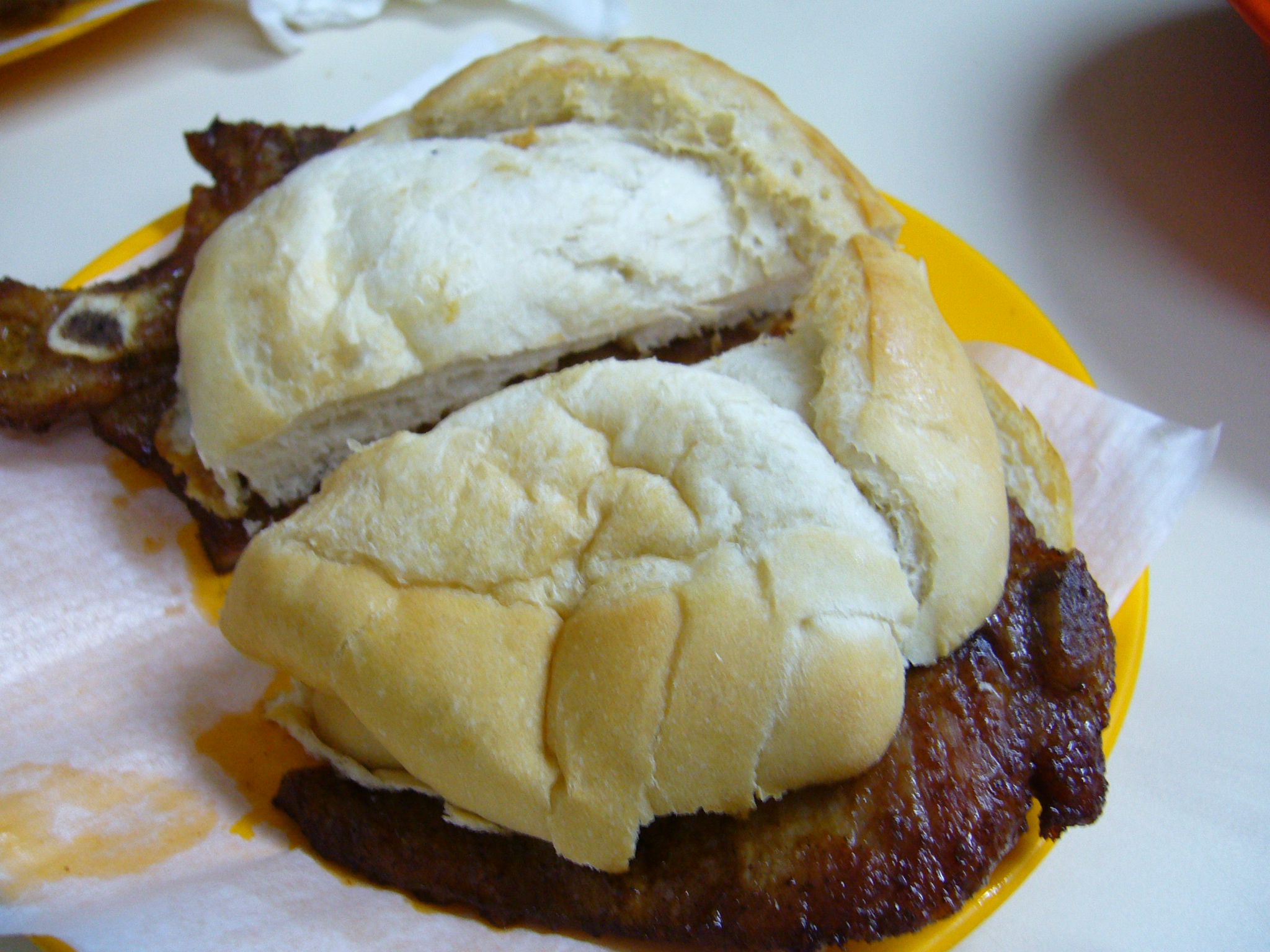
Despite its small area, Macau is home to a variety of sports and recreational facilities that have hosted a number of major international sporting events, including the 2005 East Asian Games, the 2006 Lusophony Games, and the 2007 Asian Indoor Games.
The territory regularly hosts the Macau Grand Prix, one of the most significant annual motorsport competitions that uses city streets as the racetrack. It is the only street circuit that hosts Formula Three, touring car, and motorcycle races in the same event. The Guia Circuit, with narrow corner clearance and a winding path, is considered an extremely challenging course and a serious milestone for prospective Formula One racers.
Macau represents itself separately from mainland China with its own sports teams in international competitions. The territory maintains its own National Olympic Committee, but does not compete in the Olympic Games. Current International Olympic Committee rules specify that new NOCs can only be admitted if they represent sovereign states (Hong Kong has participated in the Olympics since before the regulation change in 1996).
